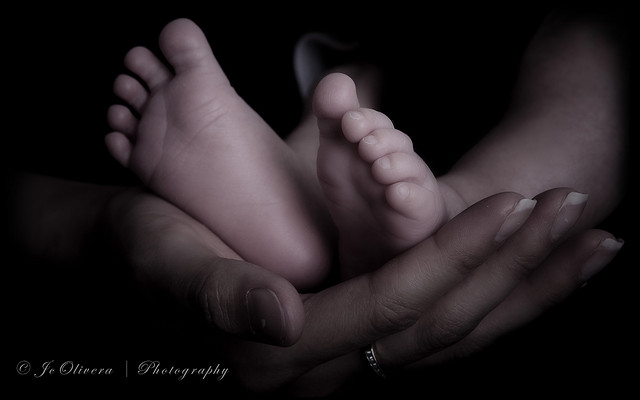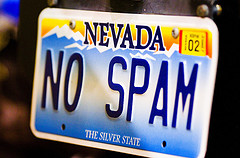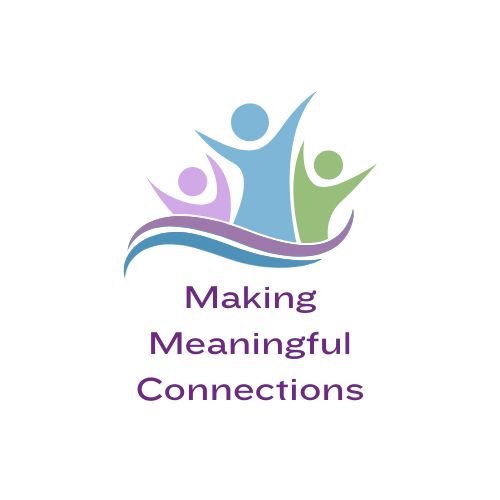
by Barb Abramson | Oct 19, 2014
My father had deep brown eyes that twinkled as he regaled everyone in earshot with his punny jokes while we all groaned and rolled our eyes.
But when dementia set in, and eventually Alzheimer’s, I would have listened to his jokes all day without one groan just to see the light in his eyes instead of the fear that replaced them.
I didn’t notice the changes at first. The forgetfulness and the inability to focus. But as the disease continued to creep into his body, the light began to dim in his eyes.
As my father became aware of what was happening, it scared him to know he was losing his ability to function in the same capacity he always had. His eyes would widen and he would hesitate, then shrink back into himself.
I remember going to his house one afternoon about 2:00 pm and found him and mom still in their pajamas, both overwhelmed but not sure why. Then there was the day when I called and got a fast busy tone on the line. I called their cell phone and it wasn’t working either. Concerned, I drove over and found them sitting in the dark. Confused. Scared.
In my dad’s office were a pile of bills. A pile of unpaid bills, including collection notices. Alarms bells were going off in my head. This was not my dad!
Role reversal is hard – on both the parent and the child. It didn’t matter that I’m a grown adult. I want my dad to be my dad.
For me, the heartache was that this was my parent – my dad – the man I leaned on and depended on while I was growing up. My dad was strong and smart and always knew what to do. He was my “go to guy.”
I remember the moment when someone asked him a question and he just pointed to me, indicating that I am in charge. On the outside, I smiled and answered. Inside I cried. Yet at the same time, I felt honored that I was given a gift – to be able to give back and care for the man that cared for me.
I knew it was time to have a conversation with him about what was happening. It was painful for both of us and I learned so much from talking with him that day, and over time.
People with dementia are afraid. They know things aren’t right. They are afraid to admit it and dread anyone else finding out. So having that conversation was devastating for him, but what he was able to share was so powerful in helping me to help both of us.
There were five things he told me that may help you and someone you love too.
“I’m afraid of what is happening.”
If you find what is happening to a loved one is scary for you, take a step back and look at it through their eyes. Dad was aware that things had changed and it really frightened him. He didn’t want to admit it and was afraid to let someone know, and he was afraid of the reaction his friends and family would have if they found out. He talked to me about not feeling whole and in control. He felt his mind was slipping and not only was he losing his mind, he was losing himself.
“Please don’t be mad if I don’t know who you are.”
Dad would see someone heading his way and the panicked look on his face told me everything. He knew he was suppose to recognize them, but didn’t.
“I am so confused. About everything!”
Simple things like the day, date and time eluded him. Activities he used to be so good at seemed tedious. A man who lived by the calendar suddenly felt lost and didn’t know what he was supposed to be doing or when. Tasks that are part of every day living such as taking out the trash, opening mail and paying bills weren’t on his radar any more. Leftovers piled up and rotted in the refrigerator, unnoticed.
“I don’t know that I’m repeating things.”
Dementia and Alzheimer’s affects short-term memory. My dad didn’t know he was saying something repeatedly. “You just told me that” is painful for both of you because it makes two people feel bad. You and them. You are reminding them they are failing at something, and you are grieving for the loss of this person’s capacity.
I’m too overwhelmed to manage self care.”
My dad had no awareness that his clothes didn’t match or he hadn’t shaved or brushed his teeth. His hair was a mess and he wore slippers all the time because they felt good. Once, my mom was in the hospital and my son picked my dad up to bring him to see her. He was wearing his clothes over his pajamas! I also know he often slept in his clothes.
I learned compassion as I cared for my dad. I learned to hold his hand and let him repeat himself and act like it was the first time he told me his story. I smiled at him and tried to make him feel safe. I whispered the names in his ear of others in the room so he would know who they were. His doctor helped me understand what was happening and I sought out support groups to help me with the fear, overwhelm and confusion I was feeling.
I feel really lucky that my dad still recognized me to the end, something that many loved ones don’t experience. Even though his memory slipped away, my memories of him, even through his struggles, comfort me.
And to this day, I have a penchant for punny jokes. While others may groan, to me, they are a hug from my dad.
Flickr Christos Tsoumplekas

by Barb Abramson | Oct 11, 2014 |
If you know me at all, you know I am incredibly proud of my son. And if you don’t know me yet, or very well, know that I am incredibly proud of my son. I am proud of the man he has become. He is thoughtful, insightful, generous, kind and a lot of other wonderful adjectives that makes a mom’s heart burst with love and oh yeah, pride.
He graduated high school, went to college out of state, and every year assumed more financial responsibility to make it easier on us as he got jobs. First his food, then his utilities, finally his rent and insurance on his car. He has since moved three times around the country, pursuing his career, and is now enrolled in grad school, paying his own way. And, he’s happily married, gifting us with a lovely daughter.
But let’s backtrack a bit. It wasn’t always smooth sailing. I’m talking about those pre-teen and teen years that most parents moan and groan about. The push back — really challenging — years when they think they know it all and parents are idiots. Yes, we had those too.
It is so easy to see the path our kids should follow. After all, we have been there, made the mistakes and gained the wisdom. So why shouldn’t they want our experience to show them the way?
Many of us parent the way we were raised. In some families, you didn’t question your parents at all. For the easy-going child, there was never a need to. But for some children, “I’m the Mom, that’s why” or “because I told you” are instant pushback and frustrating for everyone. The child pushes back and then the parent pushes harder, and thus begins a Ping-Pong game of sorts until there is a blow up. Mom and Dad might win and feels justified, yet privately aches for the unhappy child. The child feels angry, unheard and powerless.
I came across this quote from Dr. Shefali Tsabary clinical psychologist, author and speaker — “We are in charge of our children but not in control of them”
How do we balance that with wanting the best for our children and knowing our life experience can help them on their path?
A friend gave me the some parenting advice when my son was about 10, and it totally changed our relationship. Because it taught me how to empower him. It was the BEST advice I every received.
It starts with asking the child questions, listening, being present and creating a safe space for them. It is about connecting with them in a way that lets them know they have the power to spread their wings and fly.
Here are the 7 things I said that helped empower my son be the man he is today.
1. What are your thoughts?
This is a great way to draw them out and have a conversation. It is really important to stay on your side of the fence or line, and really give them a safe space to share, because if you advance too much or too quickly, they will retreat and the conversation will be over. They have to really feel safe in letting down their defenses and the trust that is built is amazingly strong.
2. How do you plan to handle that?
I admit, the first time I asked him this question, was a bit unnerving for both of us. I took a leap of faith by not “telling” him what to do, and suddenly, he had the opportunity to choose instead of just rebel. I could almost see the wheels turning as he figured things out. The question became easier for both of us rather quickly.
3. Have you considered your options?
Sometimes, even if they know what the choices are, it gives them the opportunity to have a sounding board to explore them with.
4. Do you want to talk about it?
You are giving them the opportunity to talk because they want to, and you’re putting the choice in their lap. Be prepared for a “No” and know that that’s OK. If they don’t want to talk right now, let it be. They will come to you when they are ready, because you left the door open for them to walk through, instead of locking them in a room with you demanding to talk about it right now.
5. I’m really proud that you are working through this.
Every child, no matter what age, wants to know their parent is proud of them. This boosters self-confidence and reinforces new skills of working things out for themselves, as well as making wise choices.
6. How did that feel?
This is a follow up to something they shared. It furthers the conversation and tells them you are interested in what they had to say and share. Really engaging with your kids makes them strong, independent and prepared to handle life. It is so easy for parents to give replies with “ok” and “umm hmmm” and not be fully present. The more you allow them to express themselves, the more they will share with you.
7. I’m here if you need me.
Some kids really want to figure things out on their own. But knowing they have a safety net (you) to catch them and guide them when they are ready is the biggest gift you can give your child to empower them. I still get calls asking my advice, thoughts and opinions, because I sought those out in him.
My son calls me nearly every day and our conversations range from “Just wanted to say hi” to “Can I ask you a question?” I treasure how close we are and enjoy the friendship that has developed over the years. I look forward to the day he is a parent and has the joy of empowering his own children.
Photo: Flickr Jc Olivera

by Barb Abramson | Sep 12, 2014
On September 10, 2014, people gathered in communities around the world to bring attention to the tragedy of suicide. Candles were lit, names were read, balloons were released and hopes were expressed that help could be found for those who felt there was no longer a reason to take another breath.
And on that very day, Suicide Prevention Day, a 14-year-old boy who no longer could stand the pain of being bullied, pulled out a gun he had brought from home and ended his life in the bathroom of his middle school.
Tragic stories like this occur every day. This one, a few blocks from my home and at the very school my own son attended. The boy, small for his age, was easily a target for others and his father had begged the school to take action just the week before.
The father said he believes his 14-year-old son was struggling after he was repeatedly
bullied at the school. He said his son was given detention after defending himself against an attack by another student late last week. “I’ve spoken to the school a couple of times, and I asked them can you just please make these children stop. And now my worst fear is my worst reality. And I don’t even know how to handle that,” said the father.
Several days later, another boy at the school wrote his mother a suicide note. His only friend at school had just taken his life, and he felt even more alone and afraid. Fortunately his mother found him in time and convinced him not to harm himself.
The Center for Disease Control (CDC) reports that for youth between the ages of 10 and 24, suicide is the third leading cause of death. It results in approximately 4600 lives lost each year. The top three methods used in suicides of young people include firearm (45%), suffocation (40%), and poisoning (8%). You can read more about the CDC statistics on their website.
There is a lot of focus on diversity and teaching tolerance and acceptance of differences. I believe that is important. But what if, instead of focussing on what is different, we looked for ways to connect?
As part of their annual proclamation, The World Health Organization’s International Association for Suicide Prevention issued the following message at part of this year’s One World Connected theme.
“Connectedness is crucial to individuals who may be vulnerable to suicide. Studies have shown that social isolation can increase the risk of suicide and, conversely, that having strong human bonds can be protective against it. Reaching out to those who have become disconnected from others and offering them support and friendship may be a life-saving act.”
Mega-Country Star Taylor Swift offered this exact support to a fan on her Instagram site as noted by blogger Nick Russo of The New Bull 100.3. Taylor knows the importance of connecting to each and every fan she meets, citing that she too had been bullied and encouraging her young fan to continue to be herself.
Melissa Buchanan, LCPC-C- who works with at-risk youth in Bath, ME shared some other insights from the CDC on bullying.
“Youth who act out through bullying others may be trying to fit in and/or reacting to stress, abuse or other issues at home or school. Bullying behavior may be an important signal that they need mental health services and additional support.” In addition, “Youth who report frequently bullying others are at high long-term risk for suicide-related behavior.” AND Youth who report both being bullied and bullying others (sometimes referred to as bully-victims) have the highest rates of negative mental health outcomes, including depression, anxiety, and thinking about suicide.
It seems what the CDC is saying is that these kids (bullies) just want to fit in too. They may be bullied themselves, or are in, or have been in, other abusive situations and are themselves at risk for suicide.
People, especially kids, want to belong; to have a sense of community. While community is made up of different groups coming together, it is the groups themselves that have a unique bond. It is not about negating diversity, but to look for and find areas of mutual interest among many groups, that then unite them in a unique way.
Incorporating concepts that bring people together build trust and foster positive relationships, especially for children who feel isolated and alone.
There is an enormous need in schools for programs that teach children to find common ground.
A school district leading the way toward this goal is the Snoquamie Valley School District in Washington State. One of the most impressive programs is their Natural Helpers Club, a peer-to-peer buddy system. This program trains a new group of students each year how to be peer mentors -– helping identify when students may seem at risk, and knowing when to seek an adult’s help. You can read more about the programs in place and the Suicide Prevention Policies they are working on as well here.
Melissa Buchanan also notes that often the adolescents she sees have a co-occurring disorder. Meaning they typically have a mental health diagnosis and a drug addiction issue. “I was quite impressed, she said with this school district’s identification of the many “faces” of this bullying/suicide epidemic.
We have to get our communities involved to keep our children safe.
* Schools must provide a safe-haven for students and should be proactive with counseling.
* Parents and schools need to partner up with open communication so that everyone’s issues are heard.
* Create a parent-staff-student advisory board that meets regularly, sets goals and encourages peer support.
* Hold workshops for students that build self-esteem, inclusion and common bonds. Bring in community partners to inspire youth with values of cooperation and helping each other succeed.
Now I’m asking the Community. What are your thoughts on bullying? How do we keep our kids safe and help kids on both sides of the issue create healthy relationships with each other. Please share your comments.
Special thanks to Melissa Buchanan for her input and research. She can be reached at Melissa@ParallelPathways.com
Photo: Courtesy of Jennifer Wagner – memorial for Lamar Hawkins III

by Barb Abramson | Aug 21, 2014 |
This morning I dropped a plastic glass on my kitchen floor and as it clattered loudly on the tile, I expected my curious canine companion to come padding in and check out the noise. But Scooby-Doo, my wonderful miniature schnauzer had passed away a couple years ago, yet my mind and body still felt the memory of the jangle of his dog tags on his collar and his inquisitive woof. It made me a little sad, but mostly it made me smile.
Then I remembered other Scooby antics and my smile broadened. There were the nights when my husband would come to bed and Scooby would be laying on his side with his head on the pillow, covered by the blanket. It was our favorite prank.
Scooby loved treats. We trained him to lay perfectly still with a treat on each paw while he waited for the command to “Go Get It” so he could devour them. His little body would quiver with anticipation as he looked back and forth at the goodies that were so close. I giggle now thinking about it.
I miss him very much. I miss my parents too and many dear friends and relatives. We all miss those not in our lives anymore. But I found that connecting to happy memories keeps me centered and open to experiencing more joy every day. I choose to anchor those happy feelings.
Here is my recipe for Anchoring Joy.
Take a deep breath and think back to a happy memory.
How did it make you feel?
Warm and cozy?
Giggling and giddy?
Elated? Proud?
Go over the scene in your mind. What were the colors? The smells? The sounds. Visualize it in your mind.
Do you have the picture in your head? Can you feel it in your body?
Take another deep breath as you hold that energy for a moment. Is there a word or feeling that comes up for you?
Say it out loud so that it becomes associated more strongly with the image you visualized.
Now lock it in. The goal is to be able to recall the good feelings and thoughts at anytime by recalling your word or feeling.
This is called an anchor – a tool used to bring us to an emotional state by associating a key word with a thought or feeling.
The anchor will keep you from drifting away from your naturally joyful state when you are feeling low.
I call out Scooby-Doo in a silly voice from the cartoon I grew up with. I can’t help but smile.

by Barb Abramson | Aug 19, 2014
Hi. I met you last week at a networking event and yes, we exchanged business cards. We shared a few bits of information about our businesses and then you moved on quickly to someone else. I didn’t see you the rest of the evening to talk to you again so I could get to know you.
Yesterday, your newsletter arrived in my inbox. You offered me your specials and asked me to LIKE you on Facebook. You suggested I check out all your services and to contact you to order your products right away. I had to stop and think about where I met you. You see, there was no introduction to go along with your newsletter noting where we had met. No invitation to get together so we could continue our conversation. Nope. Just the newsletter in my email.
Unfortunately, this in-your-face approach is all too common and also the reason why many people are discouraged by networking groups. But maybe you are new to networking and don’t know that it’s important to build a relationship with someone instead of trying to sell to them.
Your newsletter reminded me of another “networker” I met a few years ago who circulated through the room and dealt out her business cards like she was playing a hand of poker and asked for everyone’s in return. The entire “card game” took less than 15 minutes and she left the event. The next day I received an email declaring what a pleasure it was to get to know me, followed by information on how I could build my business by buying from her.
You can bet I never called her. Which brings me back to you and your newsletter and my options.
* I can do nothing and let your newsletters continue to arrive
* I can simply unsubscribe.
* I can respond and let you know that while I appreciate you sending it to me, I am not interested at this time and please take me off your list.
* I can suggest we meet to begin the process of real networking so that we can get to know each other and work on how we can help each other build our businesses.
And then your next email arrived inviting me to your Grand Opening. Save the Date! Stay Tuned! With a promise of “Watch your inbox for more emails to follow very soon!”
My first instinct was to Unsubscribe immediately. You see, I’m not sure you and I will every be referral partners. But I truly am jumping to conclusions at this point and reacting versus responding.
I will email you. In the meantime, I will use a great new tool I was introduced to by my very innovative business coach, Dixie Gillaspie, that will allow me to manage my email while I decide how and when I want to respond.
The tool is called Unroll Me and it scans your emails each day and puts them into three categories that you have designated – Unsubscribe – Roll Up – and Inbox.
Unsubscribe needs no further description. Roll Up creates a summary of all your emails in a visual box format that you can scroll through and choose to read or not. Inbox keeps the emails you want to read streaming in. Unroll Me notifies you every day if new emails are detected and asks you how to categorize them. You can modify your choices at any time.
Unroll Me is free and can be found here. It has really simplified my email inbox activity and I now have more time for networking and following up with the people I meet.
Time to send you an email of my own to invite you to a “get to know you session” over coffee.
First I am going to “roll up” your emails!
Photo: Flickr Thomas Hawk





